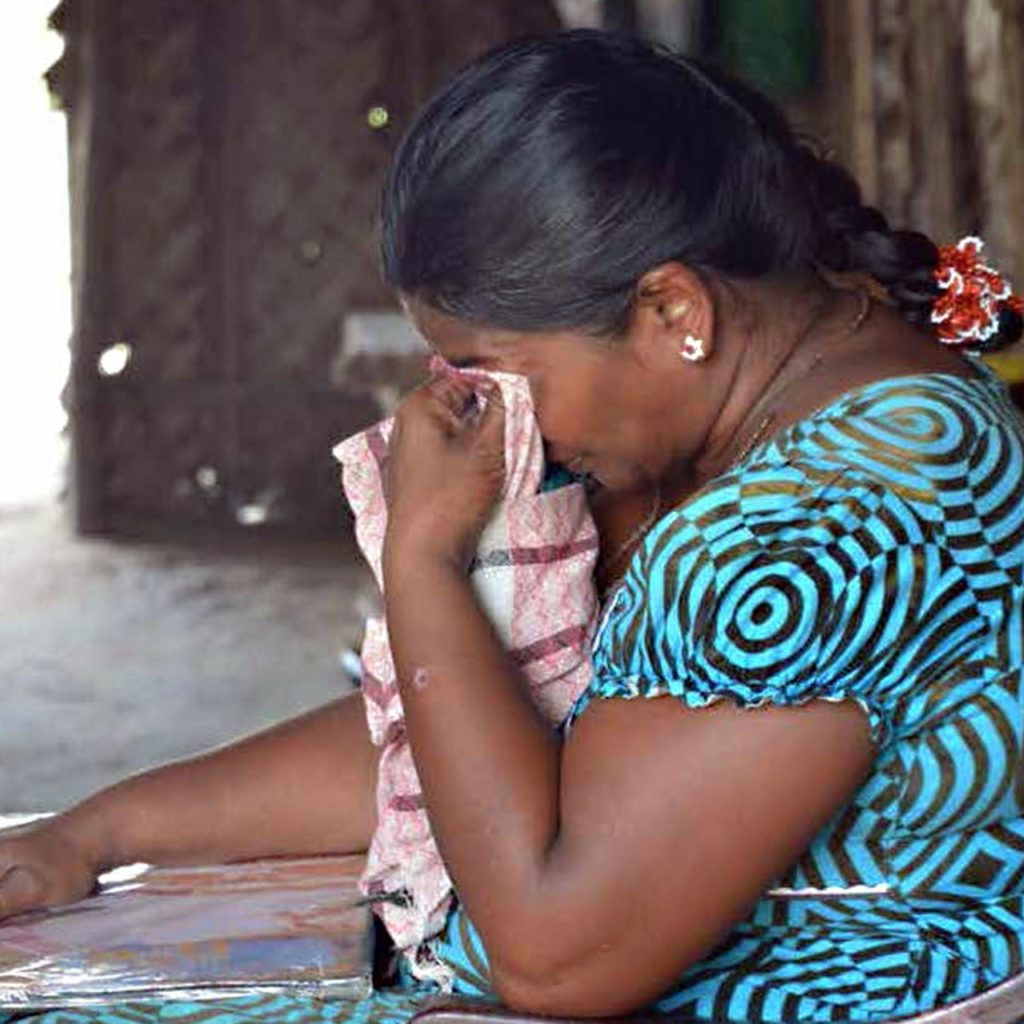Photo courtesy of ICRC
Today is the International Day for the Elimination of Sexual Violence in Conflict
Almost every conflict around the world from Bosnia to Syria, Myanmar, Ethiopia and Sri Lanka, involves Conflict-Related Sexual Violence (CRSV). It refers to rape, sexual slavery, forced prostitution, forced pregnancy, forced abortion, enforced sterilization, forced marriage and any other form of sexual violence of comparable gravity perpetrated against women, men, girls or boys that is directly or indirectly linked to a conflict.
Perpetrators are often affiliated with a State or non-State armed group while victims are political, ethnic or religious minoritiesor targeted for sexual orientation or gender identity. CRSV happens when there is a climate of impunity where perpetrators do not face the consequences of their crimes. Prevention comes from the top therefore military leaders must punish their troops who commit acts of sexual violence.
In 2015, the UN General Assembly proclaimed 19 June the International Day for the Elimination of Sexual Violence in Conflict to raise awareness of the need to put an end to CRSV, to honour the victims and survivors of sexual violence around the world and to pay tribute to all those who have devoted their lives to and lost their lives in standing up for the eradication of these crimes.
In a message to mark the day, Secretary General of the UN, António Guterres, condemned sexual violence in conflict as “a cruel tactic of war, torture, terror and repression”. He said practitioners in the field estimated that for each rape reported in connection with a conflict, 10 to 20 cases go undocumented. “We cannot allow this already underreported crime to slip further into the shadows. Perpetrators must be punished,” he said.
Sexual violence in conflict was not a topic of international concern until the early 1990s when the global women’s movement propelled it onto the global agenda. There was renewed interest in the CRSV when the Nobel Peace Prize for 2018 was awarded to Denis Mukwege and Nadia Murad “for their efforts to end the use of sexual violence as a weapon of war and armed conflict.”
Recent examples of CRSV include repeated rape of Bosnian Muslim women by Serb soldiers intent of impregnating them, gang rape of Tutsi women by Hutus in Rwanda to eliminate the Tutsi population and rape of East Timorese women by Indonesian soldiers occupying their land.
The UN has verified reports of CRSV against Yazidi girls who were kidnapped by ISIL and held as sexual slaves. When they returned home to Iraq, they were seen as being affiliated with ISIL and subjected to discrimination and violence by local people.
Today, Rohingya women and children in camps for internally displaced persons in Bangladesh are at risk of sexual violence, including forced marriage and forced pregnancy while in Ethiopia, over 100 allegations of rape have been made against the Tigray People’s Liberation Front, who are fighting the Ethiopian army.
Survivors of CRSV face a myriad of problems. Most often they are afraid to come forward for fear of retaliation by the people who have terrorised them. Sometimes, they may be living in the same neighbourhoods. Another is the stigma they face in their own communities and in society, which prevents survivors from accessing services and claiming benefits. The stigma results in self-loathing and self-blaming. Women are ostracised by their families and beaten up by their husbands. Some women may have children through rape whom they have to care for.
In Sri Lanka, there are a lack of psychosocial support for trauma the women have faced that takes place over the years during and after war. When trauma compounds, it becomes Post Traumatic Stress Disorder. Survivors in rural areas affected by war are not reached by skilled professionals.
A report by UN Women on the needs of sexual violence victim survivors in Sri Lanka states, “CRSV survivors, including female heads of households that have been subject to SV require access to socio-economic opportunities and access to justice. These include access to livelihood opportunities, access to health and sexual and reproductive health care, land ownership, access to water and other socio-economic rights. Survivors, in order to access the criminal justice system to seek justice for violations committed against them, require psycho-social support, legal support, psychological and psychiatric services, professional counseling and support services and the guarantee of physical protection due to fear of retaliation from perpetrators. When accessing the criminal justice system, Tamil-speaking CRSV survivors (including Tamil and Muslim women) face a language barrier throughout the criminal justice process in the courts, when accessing health services and when they approach law enforcement officers.”
In his 2021 report on CRSV, the UN Secretary General features Sri Lanka as one of the countries where CRSV continues despite the war ending in 2009.
“Survivors of conflict-related sexual violence, particularly those who came forward to engage with the transitional justice process, are experiencing increased barriers to attaining justice in the current context. War widows and other marginalized groups are at heightened risk of sexual violence, in particular in heavily militarized areas such as the Northern Province, owing to an entrenched post-conflict culture of violence,” the report said.
